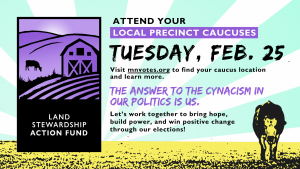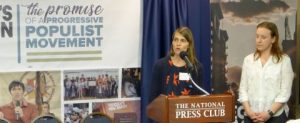You can help deepen and expand our collective electoral power. Commit to Caucus on Tuesday, February 25th! This page requires a frames-capable browser. Questions? Contact Megan Jekot at mjekot@landstewardshipaction.org.
We Are Greater Than Fear
Whether we are white, black or brown, have been in the United States for 10 generations, or are a newcomer here, we all want to leave future generations a healthy and beautiful Minnesota. We all share and depend upon this Earth, and this election season we cannot let divisive and harmful rhetoric from certain politicians […]
Migrants are Not Expendable Commodities
By Amy Bacigalupo Recent revelations that at least 2,300 migrant children have been separated from their parents under U.S. President Donald Trump’s “zero tolerance” policy highlights an ugly fact: this country’s immigration policies are inhumane, divisive and unsustainable, and they have been for a very long time. The atrocity of tearing young children from their […]
Bold Solutions Call for Bold Action
By Mark Schultz The people of Minnesota are beginning to consider what they would like the future of the state to look like in the context of the fall gubernatorial elections. Will they elect Minnesota’s first woman governor? Go “Back to the Future” with a former governor? Select a leader in agriculture policy? Or a […]
There Are No Healthy Communities Without Racial Justice
By Laura Frerichs NOTE: Land Stewardship Project board of directors member Laura Frerichs spoke April 24 at the National Press Club during the People’s Action Rural & Small Town Organizing Cohort Gathering. Below is the text of her talk: My name is Laura Frerichs. I’m an organic vegetable farmer from rural Hutchinson, Minn., where I […]


